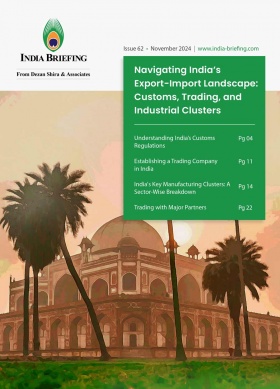India Tightens GMP Standards for Pharmaceutical Industry, Effective January 1, 2025
Effective January 1, 2025, India’s pharmaceutical industry will face stricter regulatory standards under the revised Schedule M of the Drugs and Cosmetics Rules, 1945. This upgrade in Good Manufacturing Practices (GMP) aims to enhance manufacturing quality, safety, and compliance across the sector.
Starting January 1, 2025, India will adopt stringent regulations for its pharmaceutical sector, focusing on compliance with revised Good Manufacturing Practices (GMP) under Schedule M of the Drugs and Cosmetics Rules, 1945, and adherence to the Uniform Code of Pharmaceutical Manufacturing Practices (UCPMP).
As per reports, companies failing to meet the revised standards face the risk of non-compliance penalties, which could include factory closures. Stricter enforcement of GMP and UCPMP regulations, combined with evolving policies, indicates India’s efforts to meet necessary quality standards for its pharmaceutical manufacturing segment.
Overview of revised Schedule M
The latest update to Schedule M of the Drugs and Cosmetics Rules, 1945, was notified by India’s Union Ministry of Health and Family Welfare on December 28, 2023. The revised guidelines include upgrades in physical infrastructure, air handling systems, machinery, and more.
Additionally, it introduces a comprehensive regulatory framework to align India’s pharmaceutical sector with global GMP standards. These changes focus on improving the quality, safety, and efficacy of drugs produced domestically, ensuring compliance with both national and international benchmarks.
New guidelines and requirements
The revised Schedule M is titled “Good Manufacturing Practices and Requirements of Premises, Plant, and Equipment for Pharmaceutical Products.” It encompasses critical principles such as:
- Pharmaceutical Quality System (PQS).
- Quality Risk Management (QRM).
- Sanitation and hygiene.
- Qualification and validation.
- Complaints and adverse reactions.
- Product recalls.
- Change control.
The implementation timeline for the revised guidelines is phased based on the size of the pharmaceutical companies:
- Large manufacturers, with turnover exceeding INR 2.5 billion (US$29.14 million), are required to comply with the revised Schedule M by June 28, 2024
- Small and medium manufacturers, with turnover up to INR 2.5 billion (US$29.14 million) or less, are required to comply with the revised Schedule M by December 28, 2024.
Infrastructure upgrades and improved operational methodologies
The updated guidelines call for substantial enhancements in pharmaceutical infrastructure and operational methodologies. These include the preparation and submission of detailed product development reports, rigorous validation of processes and methods, and the implementation of advanced pharmacovigilance and post-marketing studies.
Adhering to the new regulation may prove necessary for domestic companies for securing and maintaining manufacturing licenses, underscoring its significance for uninterrupted operations in the pharmaceutical sector.
Addressing compliance gaps in India’s pharma sector
Experts have made note that the country’s pharmaceutical sector faces notable compliance challenges. Of the 10,500 manufacturing units present in India, only 2,000 units currently meet WHO-GMP standards. Smaller enterprises, which make up 80 percent of the industry, grapple with significant hurdles in upgrading their facilities and processes to achieve compliance. Addressing these gaps is critical for aligning the sector with global manufacturing standards and maintaining its competitive edge.
Conclusion
The revised Schedule M marks a shift in India’s pharmaceutical regulations, reflecting the evolving landscape of global manufacturing standards. By implementing these changes, India aims to enhance its reputation as a trusted pharmaceutical exporter while ensuring the safety and efficacy of drugs for domestic and international markets.
(US$1 = INR 85.77)
About Us
India Briefing is one of five regional publications under the Asia Briefing brand. It is supported by Dezan Shira & Associates, a pan-Asia, multi-disciplinary professional services firm that assists foreign investors throughout Asia, including through offices in Delhi, Mumbai, and Bengaluru in India. Readers may write to india@dezshira.com for support on doing business in India. For a complimentary subscription to India Briefing’s content products, please click here.
Dezan Shira & Associates also maintains offices or has alliance partners assisting foreign investors in China, Hong Kong SAR, Dubai (UAE), Indonesia, Singapore, Vietnam, Philippines, Malaysia, Thailand, Bangladesh, Italy, Germany, the United States, and Australia.
- Previous Article India Manufacturing Tracker: 2024-25
- Next Article








